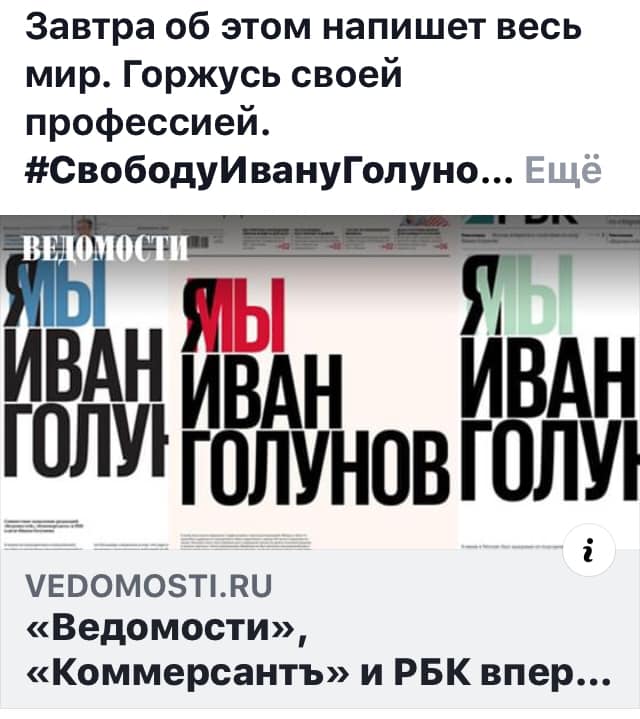 “Tomorrow, the whole world will write about this. I am proud of my profession. #FreeIvanGolunov…” Vedomosti.ru: Vedomosti, Kommersant, and RBC will for the first time…” Screenshot of someone’s social media page by Ayder Muzhdabaev. Courtesy of Ayder Muzhdabaev
“Tomorrow, the whole world will write about this. I am proud of my profession. #FreeIvanGolunov…” Vedomosti.ru: Vedomosti, Kommersant, and RBC will for the first time…” Screenshot of someone’s social media page by Ayder Muzhdabaev. Courtesy of Ayder Muzhdabaev
Ayder Muzhdabaev
Facebook
June 9, 2019
Russia’s “liberal opposition journalists” have been vying to praise each other as they celebrate a feast of “disobedience.” They just stood in the crossfire, that is, in timid solo pickets. And now, risking having their offices torched, three newspapers have produced editions with the same headline in defense of a colleague detained by police on trumped-up charges.
They have never nor would they ever publish a newspaper with the headline “I Am/We Are Crimean Tatars,” a people their country has been murdering and imprisoning on trumped-up charges by the hundreds for the last five years.
They have never nor would they publish a newspaper with the headline “I Am/We Are Ukrainians,” a people their country has been murdering by the thousands and imprisoning by the hundreds on trumped-up charges for the last five years.
It suffices to say they would even find printing the headline “I Am/We Are Oleg Sentsov” terrifying. It would never occur to them because they know how life works in the Reich, where Ukrainians are “fascists,” and Crimean Tatars are “terrorists,” just like Oleg Sentsov. So “I-ing” and “we-ing” is taboo to them.
They are delicately integrated into the Russian Reich. They feel it in their bones. They are one of the regime’s vital props. The hybrid dictatorship badly needs to pretend there is a political struggle in Russia and the country has a free press. They help it in its quest to destroy the western world and attack other countries.
They always only do things that won’t get them in serious trouble. They would never do anything that poses the slightest risk of exposing them as real enemies of the Reich.
We enter this in #TheChroniclesOfTheRussianReich.
Translated by the Russian Reader
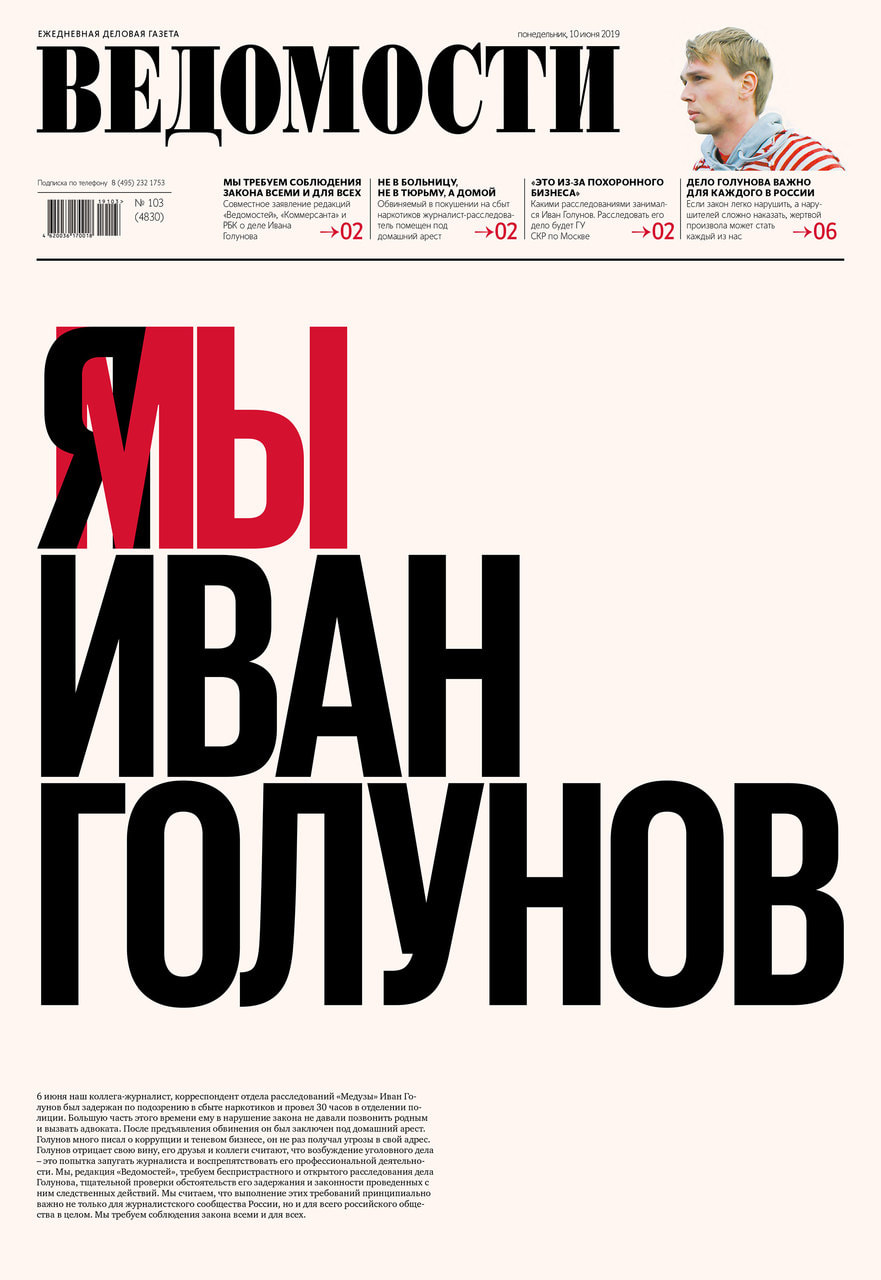
The front page of Vedomosti, June 10, 2019: “I Am/We Are Golunov.” Courtesy of Vedomosti
Joint Communique on the Ivan Golunov Case by the Editors of Vedomosti, Kommersant, and RBC
We Demand Maximum Transparency from Investigation
Vedomosti
June 9, 2019
Ivan Golunov, an investigative reporter with Meduza, was detained on June 6 on suspicion of attempting to produce and distribute narcotics.
We welcome the fact that the court has ordered house arrest for Golunov rather than remanding him in custody in a pretrial detention facility.
However, we do not find the evidence of Golunov’s guilt, as provided by police investigators, convincing, while the circumstances of his arrest raise serious doubts that laws were not broken in the conduct of the initial investigation.
We cannot rule out the possibility that Golunov’s arrest has something to do with his work as a journalist.
We demand a detailed inquiry into whether the Interior Ministry officers who were complicit in Golunov’s arrest acted legally. We insist that the outcome of this inquiry be provided to the media.
We expect law enforcement to comply strictly with the law. We demand maximum transparency from the investigation. We will closely monitor the investigation’s progress. We encourage relevant public organizations to join us.
We believe implementation is fundamentally important not only to Russa’s journalism community but also to Russian society as a whole. We demand that everyone obey the law and the law be obeyed with regard to everyone.
Translated by the Russian Reader

Pineapple upside-down cake. Stock photo
Nearly the entire leftist and liberal Russian intelligentsia have thrown their ferocious but scattered energies into a campaign to free a well-known journalist on whom the cops planted narcotics. It is obviously a frame-up and rightly makes folks in the world’s largest country indignant.
But it also makes people think they are fighting the good fight when most of the fights they should be fighting or should have been fighting long ago they ignore altogether, like the fight against what their own government and armed forces have been doing in Syria, or the kangaroo court trials against antifascists in Penza and Petersburg (the so-called Network trials), and the alleged (Muslim Central Asian) accomplices of the alleged suicide bomber who, allegedly, blew himself up in the Petersburg subway in April 2017.
I shouldn’t even mention the case of the so-called New Greatness “movement,” an “extremist group” set up, concocted, and encouraged from its miserable start to inglorious finish by the FSB (the newfangled KGB). Its so-called members did nothing but attend a couple of “political” discussions organized by the selfsame FSB.
All these young people have been framed, and many of them have plausibly claimed they were tortured by FSB officers into “confessing.”
That is, whole groups of innocent people (mind you, I am only scratching the surface here, leaving out scores if not hundreds if not thousands of the regime’s other victims at home and abroad) have been railroaded by the mighty Putinist state, but they have not been granted an audience, so to speak, by progressive Russian society because progressive Russian society cannot identify with any of them in any way.
But it can identify with the nice white middle-class reporter from Moscow. And it does want to remind itself of its essential goodness and compassion from time to time, so everyone has jumped on the bandwagon to get the reporter out of jail.
Or, rather, everyone has engaged in a frenzy of virtue signaling that may not actually get him out of jail.
Bully for them, but no one notices that many of these grassroots campaigns are patterned like hysterias and moral panics. They are also identical to other suddenly emergent internet-powered fads, like the recent craze for Game of Thrones or “Facebook flash mobs” that involve, say, posting a picture of yourself from twenty years ago and explaining what you were up to way back then.
It has to be something, anything, except the things that matter a million times more, like the Russia air force’s endless bombing of Syrian children and Syrian hospitals, and the Putin regime’s endless, vicious hunt for “extremists” and “terrorists” like the Jehovah’s Witnesses, the Network “terrorists,” the “New Greatness” extremists, the conspicuously othered (and, thus, forgotten) Petersburg subway “terrorists,” and on and on.
These witch hunts are discussed publicly by virtually no one, and their victims (this is especially the case with the Central Asian “subway bombers”) are mostly left to fend for themselves.
What matters about the reporter is that he is white, innocent, and “one of us.” Apparently, he doesn’t believe in “extremist” nonsense like anti-fascism, anarchism, Islam or Jehovah’s Witness doctrine.
The reaction to the case is a symptom of liberalism that is utterly white and nationalist, meaning it is not liberalism at all.
It is white nationalism with a human face, Great Russian chauvinism turned upside down.
“They cannot do this to one of us.”
But “they” have done to it to thousands of non-white, non-Russian others over the years, including Chechens, antifascists, Syrians, Crimean Tatars, businessmen, Muslims, Jehovah’s Witnesses, Krasnodar’s farmers, truckers, environmentalists, anarchists, LGBTQ+ activists, Central Asian migrant workers, Ukrainians, anti-“reunification” Crimeans, the passengers of MH17, US voters, etc.
Almost no one batted an eye when they were “destroyed” (this is the regime’s pet dehumanizing verb for when it murders or obliterates its enemies), neutralized or otherwise royally fucked over by the Putin regime.
It is all over but the shouting unless the shouting quickly becomes a lot more inclusive. June 9, 2019 || THE RUSSIAN READER
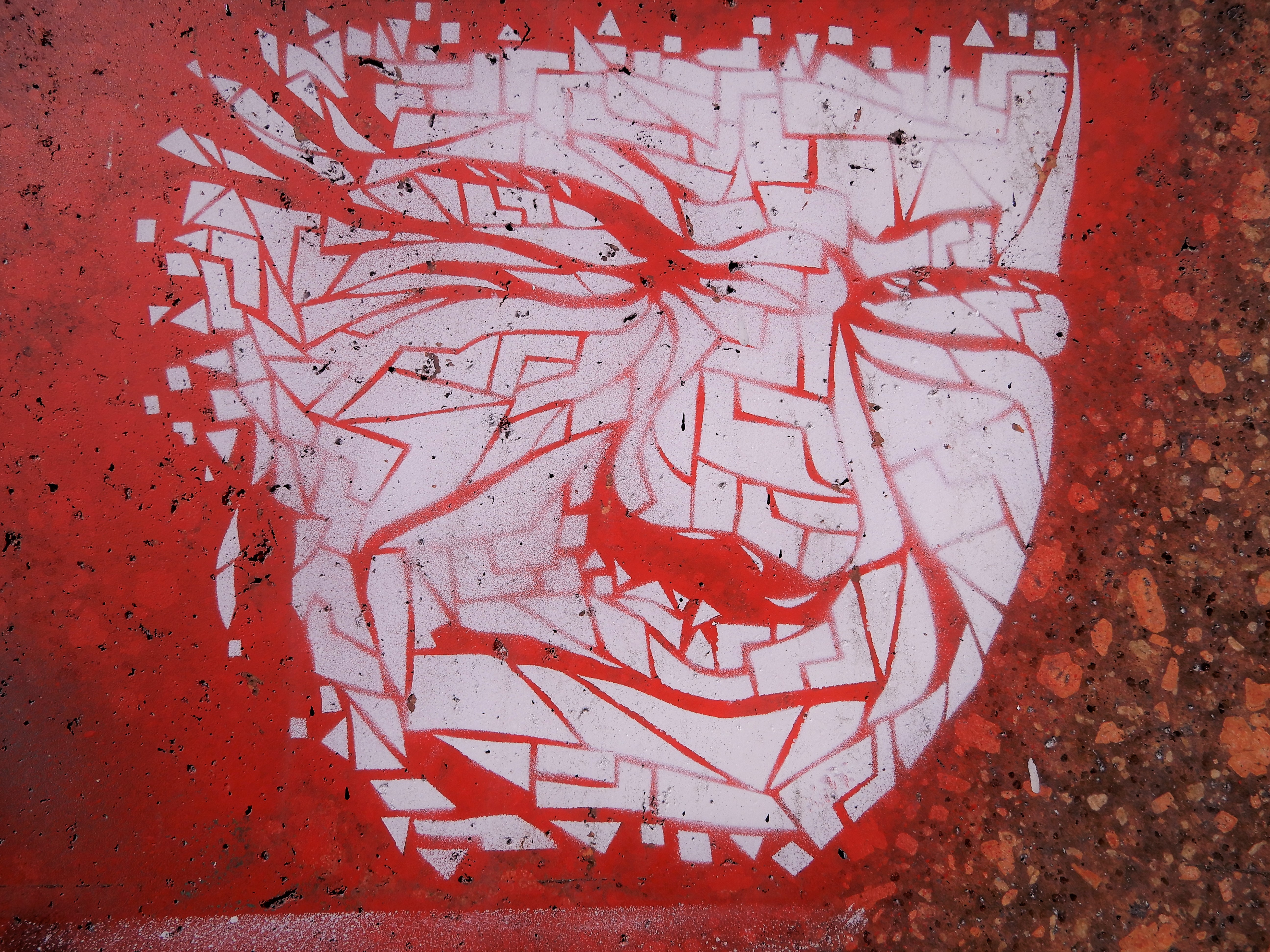 Photo by the Russian Reader
Photo by the Russian Reader
“This is too much, even for Russia.”
—Meduza editor on BBC Radio 4 morning news broadcast, commenting on the arrest of Meduza reporter Ivan Golunov, 9 June 2019
But declaring all Jehovah’s Witnesses “extremists” and organizing a witch hunt against them is not too much, “even for Russia”?
I had it with Meduza after the hamfisted, blatantly misogynist way it handled its recent in-house #MeToo scandal. The scandal revealed the actual shallowness of the website’s liberalism.
Of course, Meduza should defend its reporter from police railroading.
But the fact it has managed to make the story go international in a matter of days and then, using this bully pulpit, suggest there is nothing worse going on in Russia than Golunov’s persecution, also reveals something about the depth of its liberalism or, rather, about what passes for liberalism in Russia.
Unlike liberalism in other countries, Russian liberalism has no time for anybody but the rather narrow segment of Russians it recognizes as full-fledged human beings.
I would guess this amounts to less than one percent of the entire population, but I am probably being too generous. June 9, 2019 || THE RUSSIAN READER
 Russia does not have to worry about a crisis of democracy. There is no democracy in Russia nor is the country blessed with an overabundance of small-d democrats. The professional classes, the chattering classes, and much of the underclass, alas, have become accustomed to petitioning and beseeching the vicious criminal gang that currently runs Russia to right all the country’s wrongs and fix all its problems for them instead of jettisoning the criminal gang and governing their country themselves, which would be more practically effective. Photo by the Russian Reader
Russia does not have to worry about a crisis of democracy. There is no democracy in Russia nor is the country blessed with an overabundance of small-d democrats. The professional classes, the chattering classes, and much of the underclass, alas, have become accustomed to petitioning and beseeching the vicious criminal gang that currently runs Russia to right all the country’s wrongs and fix all its problems for them instead of jettisoning the criminal gang and governing their country themselves, which would be more practically effective. Photo by the Russian Reader
Free the Network case defendants, the Jehovah’s Witnesses facing charges and the ones already doing jail time, ditto for the Crimean Tatars, Oleg Sentsov and Alexander Kolchenko, the Ukrainian sailors, Yuri Dmitriev, the Petersburg subway bombing defendants, the myriads of Russian businessmen in prison after they were set up by rivals and taken down by the FSB for a good price, the New Greatness kids, and hundreds of other Russian “outlaws” whose names I cannot remember or, worse, have never heard.
Free them first, and the day after you free them, free Ivan Golunov.
While you are at it, stop making war in Eastern Ukraine and stop bombing innocent Syrians. And bring the people responsible for shooting down Flight MH17 and killing everyone on board to justice.
The day after you have done all these things, free Ivan Golunov.
But don’t be such arrogant, self-important pricks as to appear on the world’s most respected radio and TV network and claim the Golunov case is the worst thing that has happened under Putin’s reign.
Anna Politkovskaya was murdered, for God’s sake. And so were Stanislav Markelov and Anastasia Baburova.
I could start another list of reporters, activists, politicians, etc., who were murdered, probably on the orders of the Kremlin or with its blessing, over the last twenty years.
Boris Nemtsov was murdered only a few hundred meters from the Kremlin.
God forbid I should mention “convicted pedophile” Sergei Koltyrin. Even the most hardcore human rights advocates in Russia have abandoned him and made mention of his name taboo, although I am reasonably certain he was set up just like the saint-like Ivan Golunov, only on charges so devastating that his former allies abandoned him and he abandoned himself to the nonexistent mercies of Russia’s nonexistent justice system.
But, definitely, the worse thing that has happened under Putin’s reign is the house arrest of Meduza reporter Ivan Golunov on what are undoubtedly trumped-up drug charges. June 9, 2019 || THE RUSSIAN READER
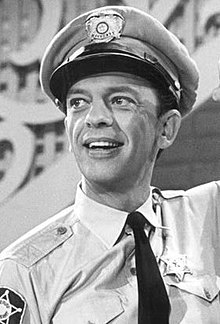
P.S. As I was assembling this collage of reflections inspired by the collective hysteria among the Russian liberal intelligentsia over reporter Ivan Golunov’s dubious arrest, it occurred to me that, perhaps, my own reaction and that of Ayder Muzhdabaev, whose “outburst” leads off this montage, were not sufficiently charitable.
But then I read and translated what the editors of Kommersant, RBC, and Vedomosti published on the front pages of their newspapers today. Their milquetoast appeal to Russian law enforcement—a multi-headed hydra that has spent the last thirty years proving again and again it is one of the most brutal, vicious criminal gangs in the world, an army of thugs who routinely terrorize the people they have sworn to protect, a mob of degenerates who will stop at nothing, including the routine use of torture, to get their man—sounds more like an appeal to US TV sitcom cops Barney Miller and Barney Fife.
Do these hardened (?) newspaper reporters really believe an appeal like this will have a real effect on the investigation of Golunov’s nonexistent crimes?
It is also worth remembering (as Sergey Abashin did on his Facebook page earlier today) that the free press warriors at Kommersant recently fired a reporter for writing negative comments about Valentina Matviyenko, formerly Putin’s satrap in Petersburg, currently chair of the Federation Chamber, which rubber-stamps all the odious, wildly unconstitutional laws sent its way. In protest at the firing, the newspaper’s entire political desk immediately resigned as well.
That, by the way, is real solidarity, although it probably won’t get them their jobs back, quite the opposite.
Meanwhile, RBC has been a shell of its former militant self after its owners fired three top editors three years ago and, again, a whole slew of reporters resigned along with them.
RBC used to have an investigative reporting desk that would be the envy of any newspaper anywhere in the world. Nowadays, it mostly reports the kinds of “news” its oligarch owners and the Kremlin want it to report.
The 2011–2012 fair elections protests were mostly an extended exercise in virtue signaling and “creativity,” not a serious attempt by the grassroots to force the Kremlin to hold fair elections, much less to attempt regime change. Russian society has paid heavily for its frivolousness then.
Why, then, has it not yet figured out what its foe is really like? Why does it appeal for justice and fairness to authorities who have proven beyond a reasonable doubt they are hardened criminals? Finally, why does it imagine that reposting Ivan Golunov’s articles on Facebook is real solidarity? Does it think the regime will fall if, say, a million people repost these articles? Five million?
Photo of Don Knotts as Barney Fife courtesy of Wikipedia
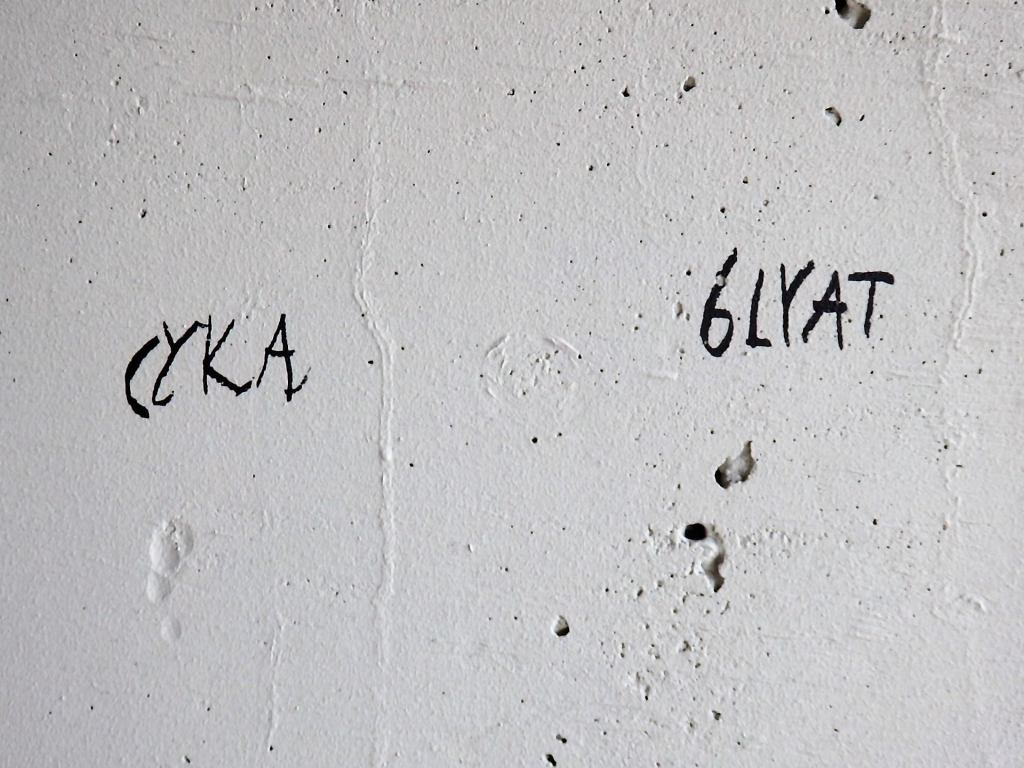

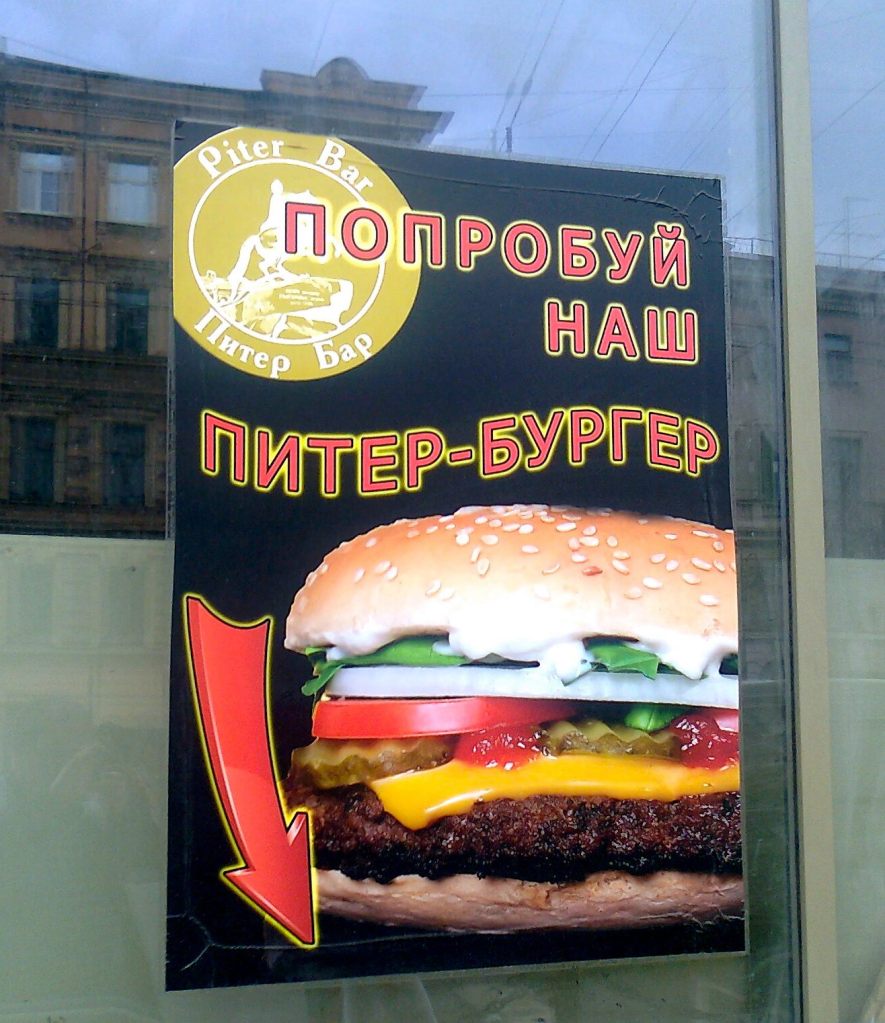
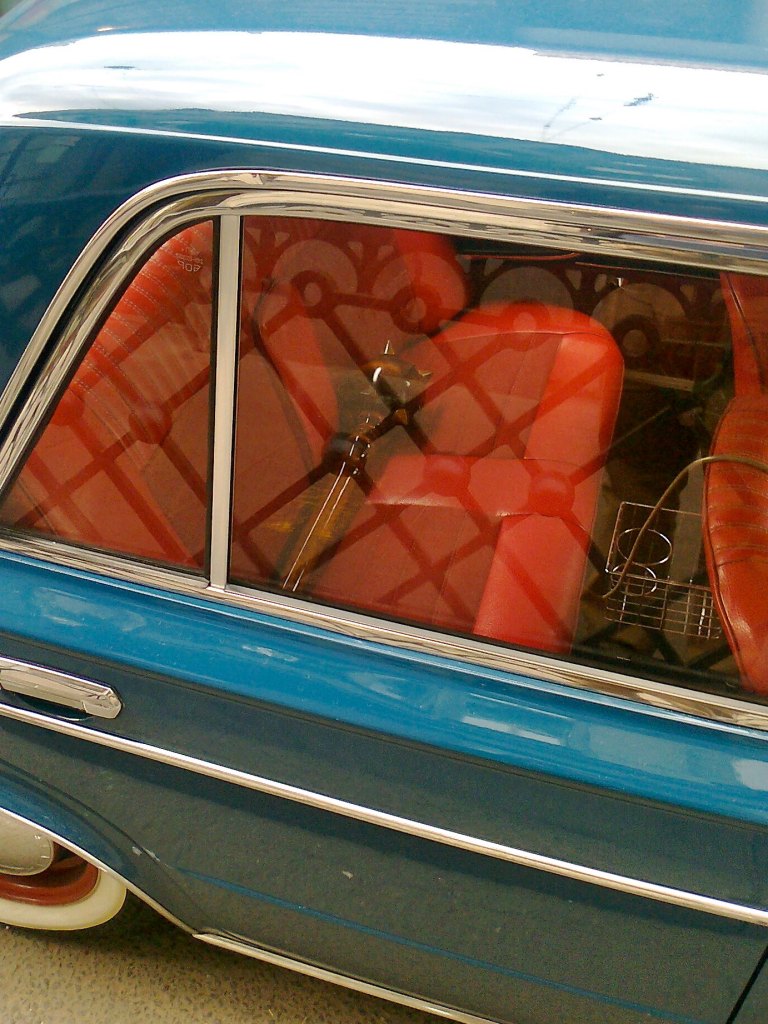
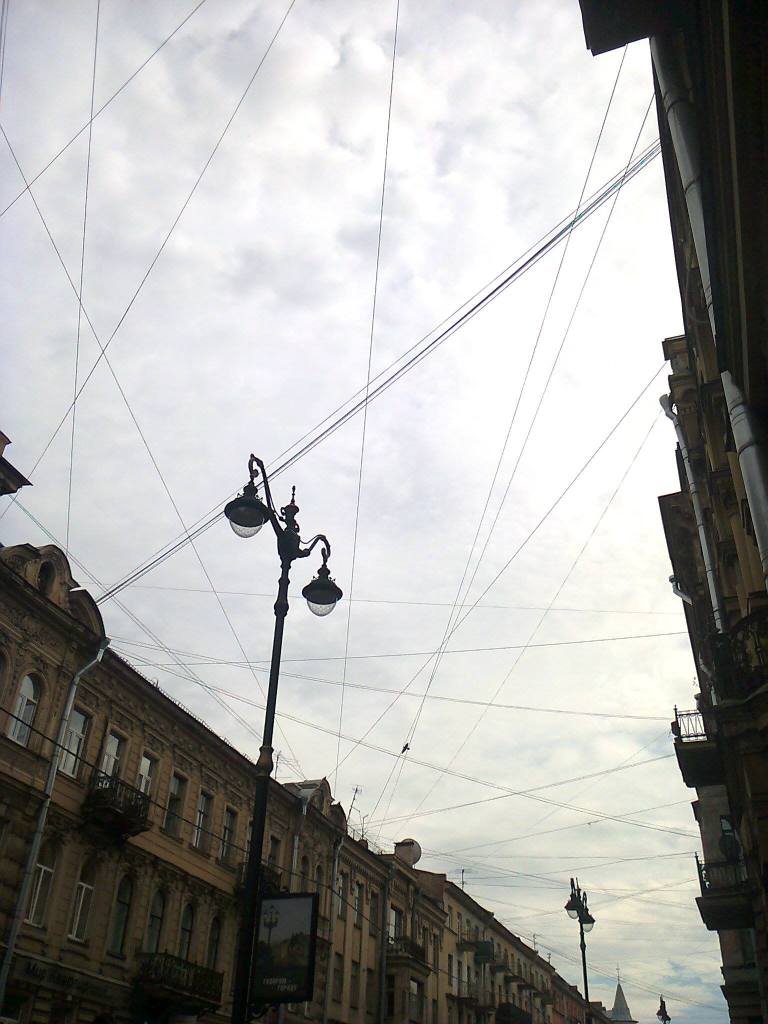
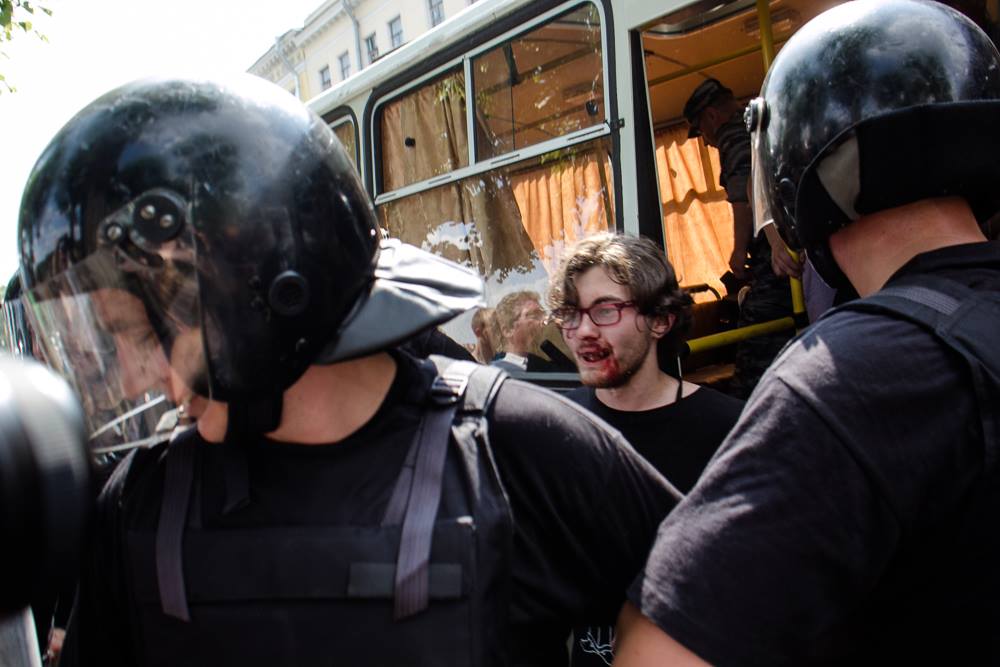
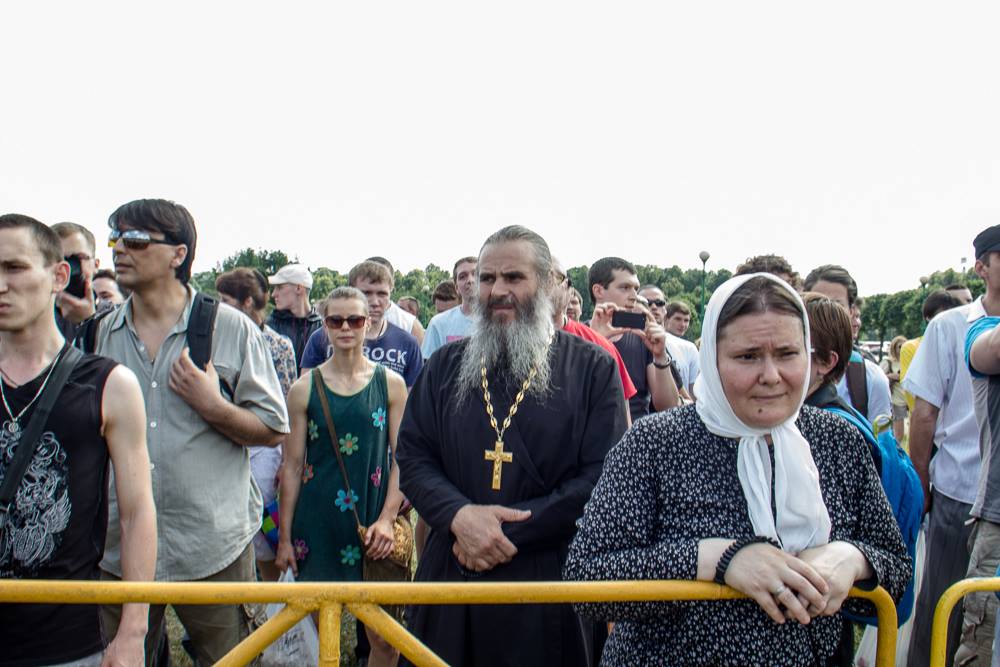
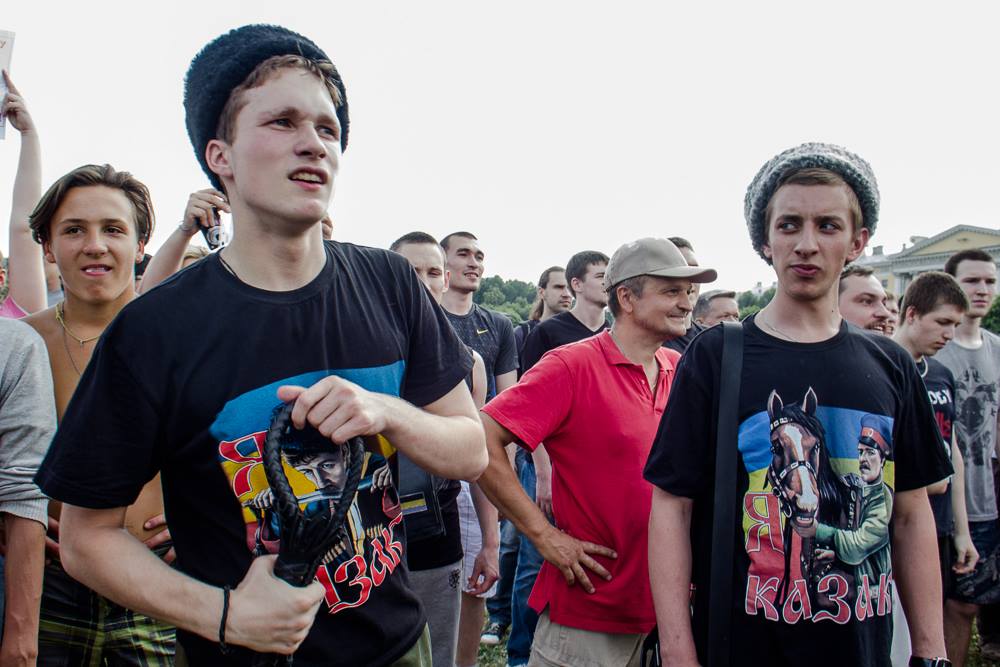
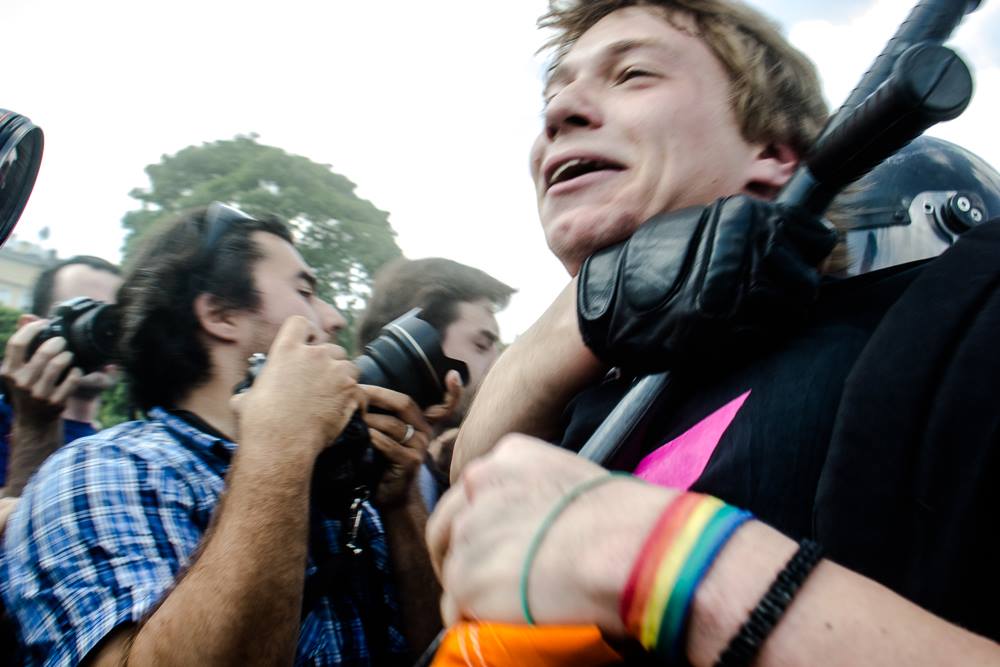
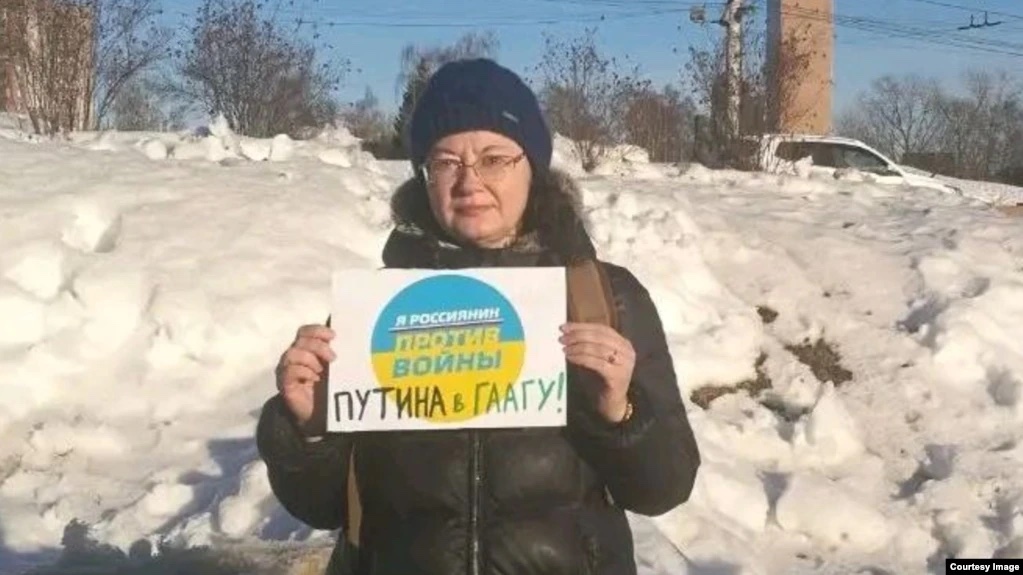
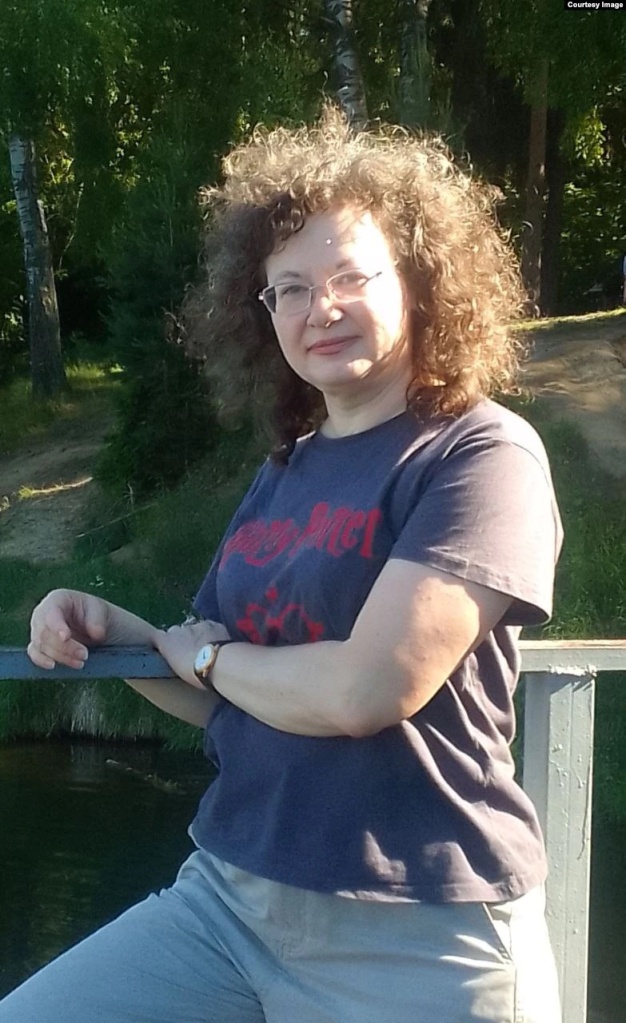
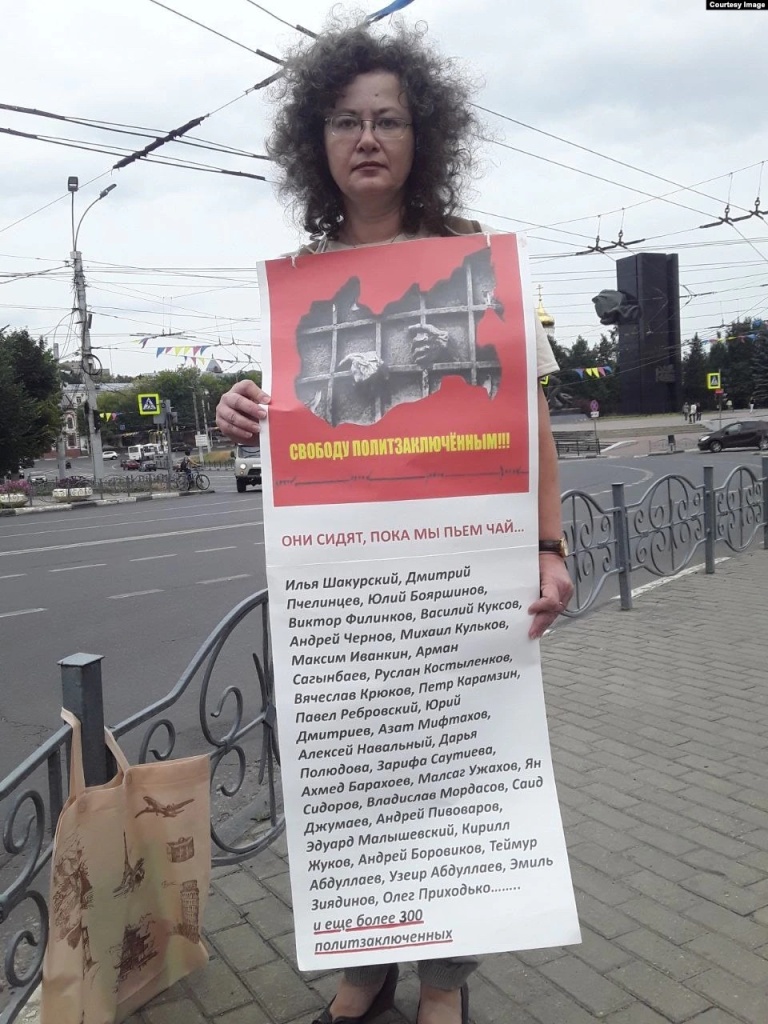
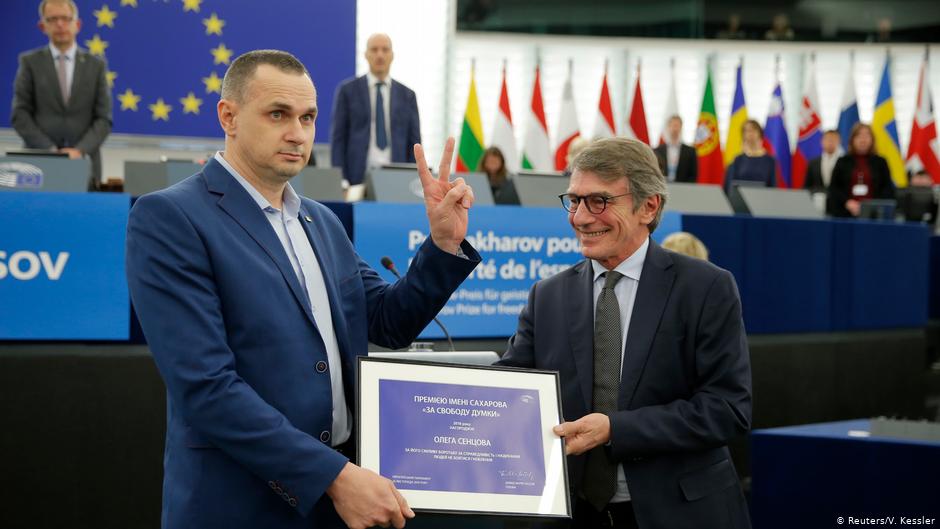 Oleg Sentsov and David Sassoli at the Sakharov Prize award ceremony. Photo courtesy of Deutsche Welle
Oleg Sentsov and David Sassoli at the Sakharov Prize award ceremony. Photo courtesy of Deutsche Welle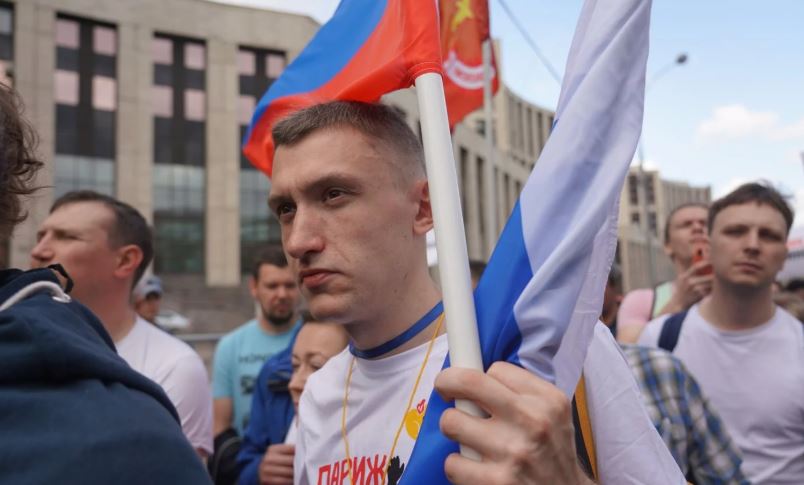 Konstantin Kotov. Photo by Adik Zubcik. Courtesy of Facebook and Mediazona
Konstantin Kotov. Photo by Adik Zubcik. Courtesy of Facebook and Mediazona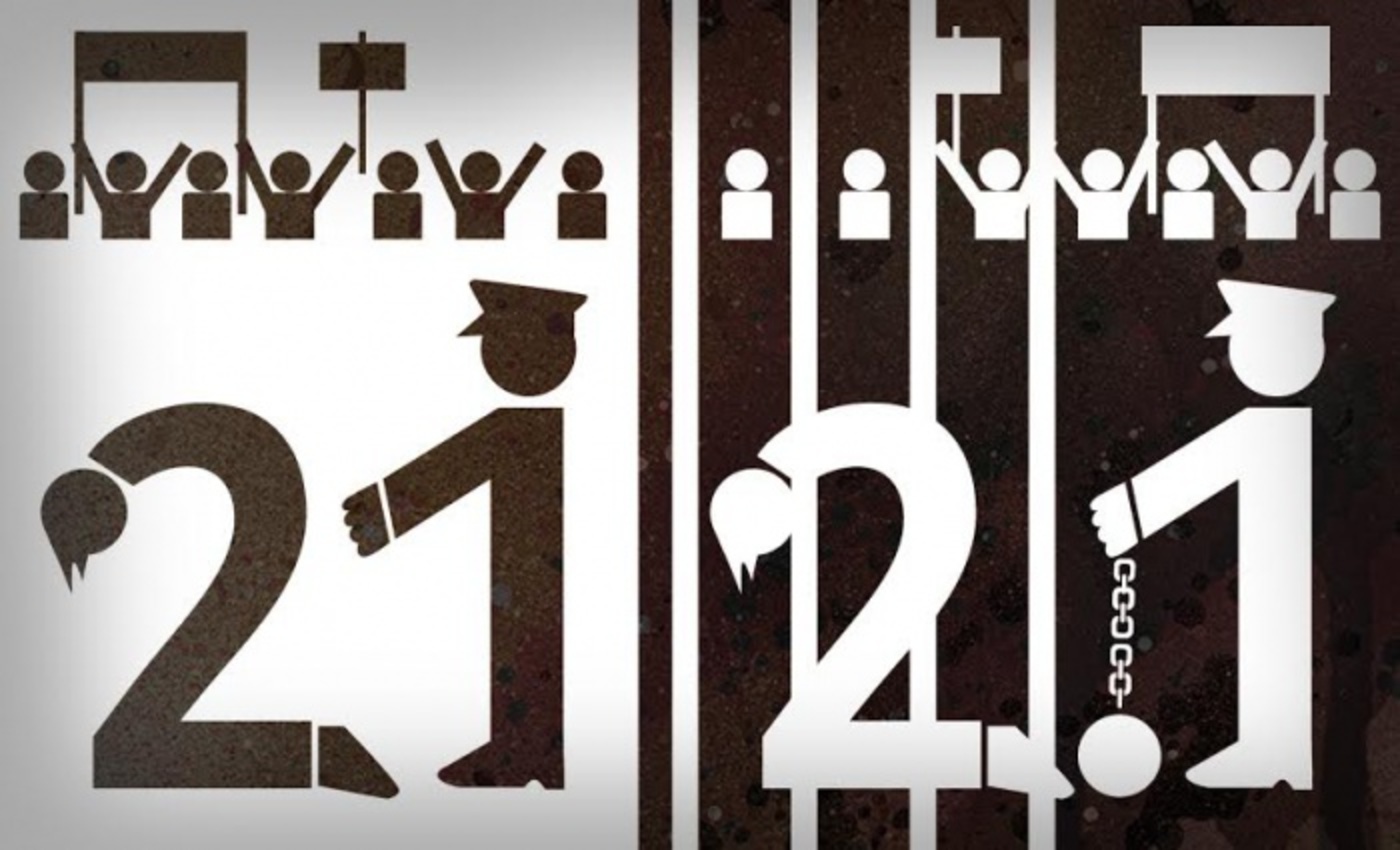 Illustration by Mike Ch. Courtesy of Mediazona
Illustration by Mike Ch. Courtesy of Mediazona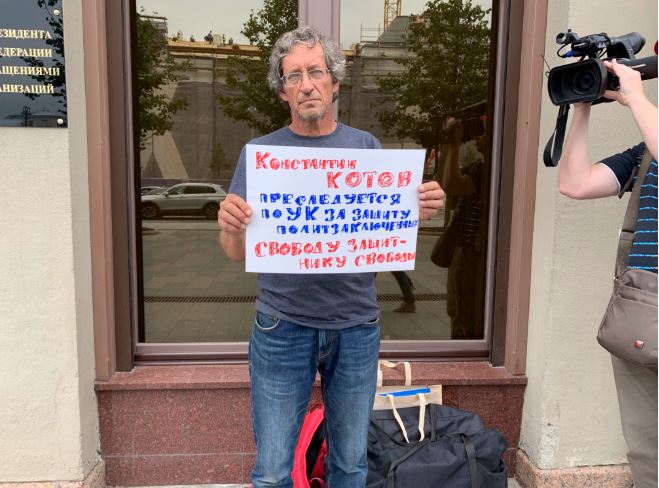 Nikolai Rekubratsky. Photo by Dima Shvets. Courtesy of Mediazona
Nikolai Rekubratsky. Photo by Dima Shvets. Courtesy of Mediazona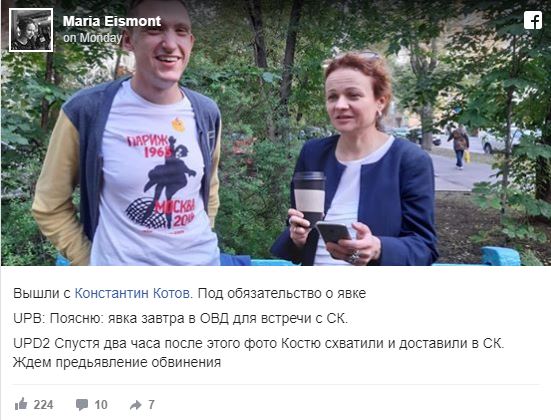
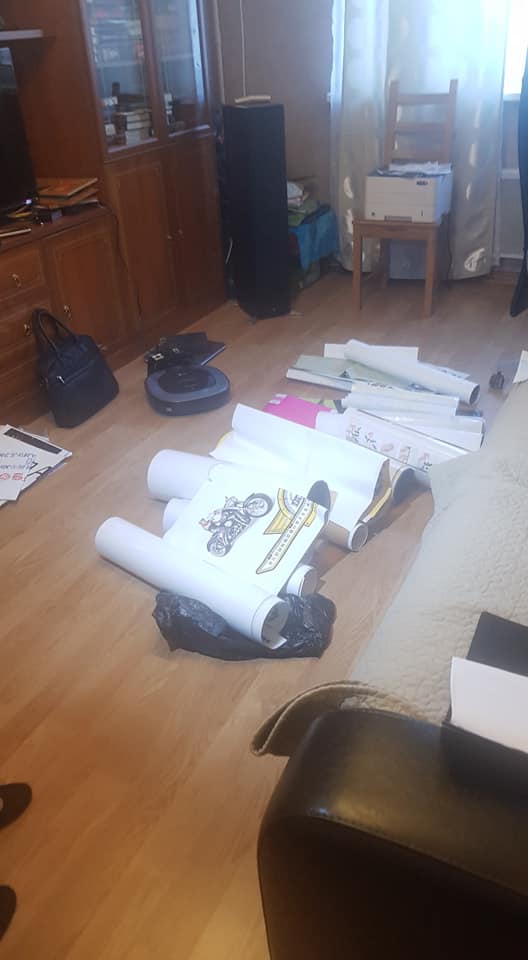
 “Tomorrow, the whole world will write about this. I am proud of my profession. #FreeIvanGolunov…” Vedomosti.ru: Vedomosti, Kommersant, and RBC will for the first time…” Screenshot of someone’s social media page by Ayder Muzhdabaev. Courtesy of Ayder Muzhdabaev
“Tomorrow, the whole world will write about this. I am proud of my profession. #FreeIvanGolunov…” Vedomosti.ru: Vedomosti, Kommersant, and RBC will for the first time…” Screenshot of someone’s social media page by Ayder Muzhdabaev. Courtesy of Ayder Muzhdabaev

 Photo by the Russian Reader
Photo by the Russian Reader Russia does not have to worry about a crisis of democracy. There is no democracy in Russia nor is the country blessed with an overabundance of small-d democrats. The professional classes, the chattering classes, and much of the underclass, alas, have become accustomed to petitioning and beseeching the vicious criminal gang that currently runs Russia to right all the country’s wrongs and fix all its problems for them instead of jettisoning the criminal gang and governing their country themselves, which would be more practically effective. Photo by the Russian Reader
Russia does not have to worry about a crisis of democracy. There is no democracy in Russia nor is the country blessed with an overabundance of small-d democrats. The professional classes, the chattering classes, and much of the underclass, alas, have become accustomed to petitioning and beseeching the vicious criminal gang that currently runs Russia to right all the country’s wrongs and fix all its problems for them instead of jettisoning the criminal gang and governing their country themselves, which would be more practically effective. Photo by the Russian Reader
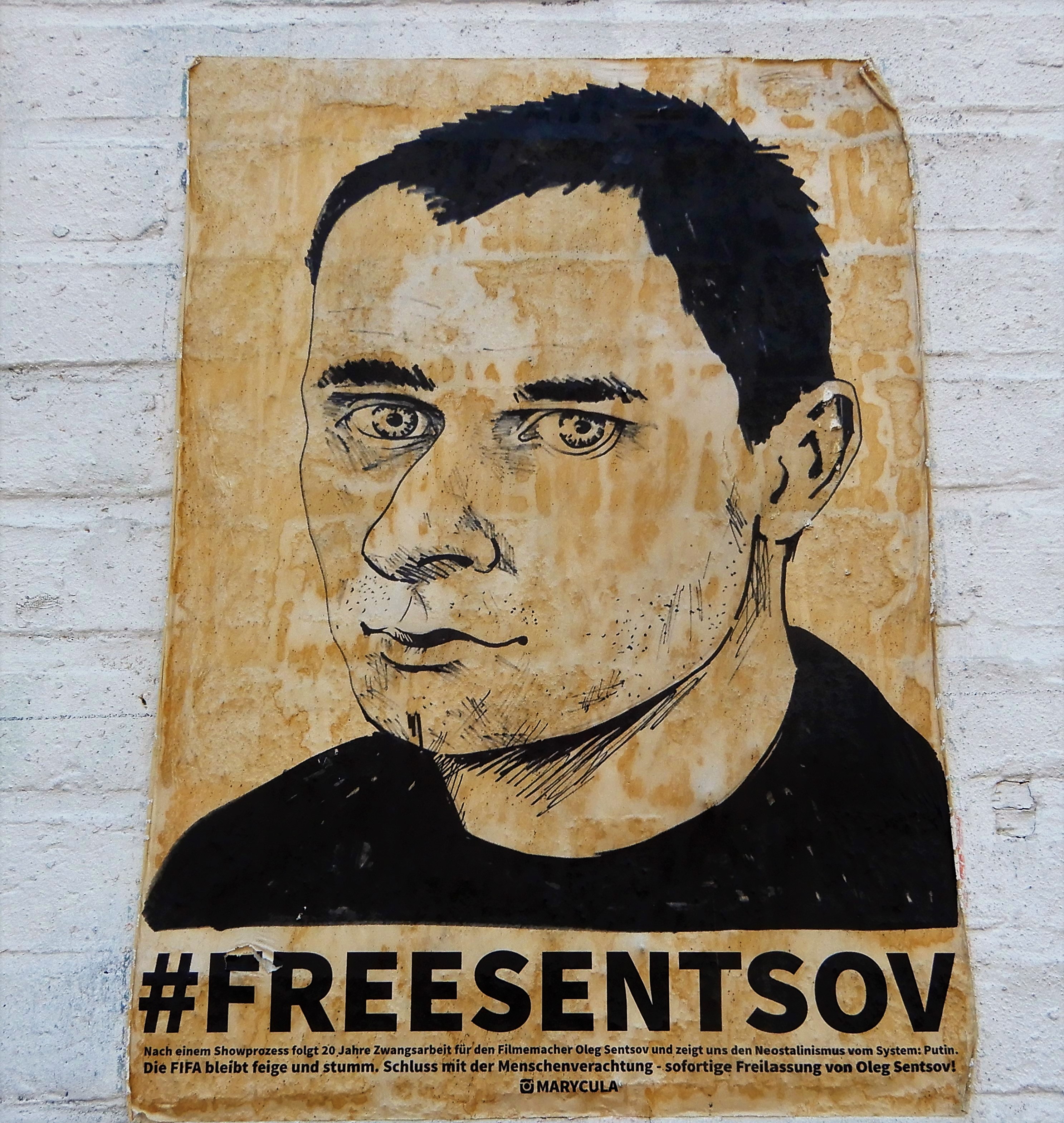 Nach einem Showprozess folgt 20 Jahre Zwangszeit für dem Filmmacher Oleg Sentsov und zeigt uns den Neostalinismus vom System: Putin. Die FIFA bleibt feige und stumm. Schluss mit der Menschenverachtung – sofortige Freilassung von Oleg Sentsov!
Nach einem Showprozess folgt 20 Jahre Zwangszeit für dem Filmmacher Oleg Sentsov und zeigt uns den Neostalinismus vom System: Putin. Die FIFA bleibt feige und stumm. Schluss mit der Menschenverachtung – sofortige Freilassung von Oleg Sentsov! 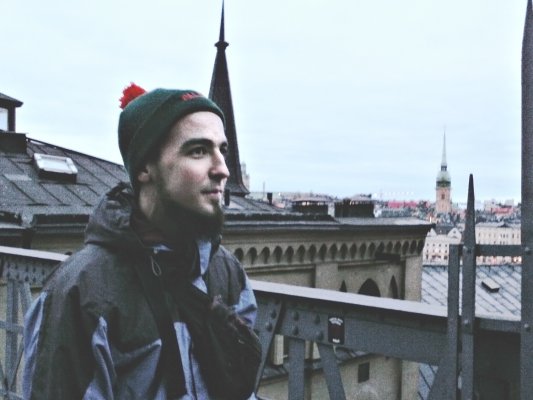 Amnesty International, the world’s premier human rights organization, thinks there is a chance Network case suspect Yuli Boyarshinov (pictured here) and his ten comrades can get a fair trial in Russia, which has a 99% conviction rate. Photo courtesy of
Amnesty International, the world’s premier human rights organization, thinks there is a chance Network case suspect Yuli Boyarshinov (pictured here) and his ten comrades can get a fair trial in Russia, which has a 99% conviction rate. Photo courtesy of 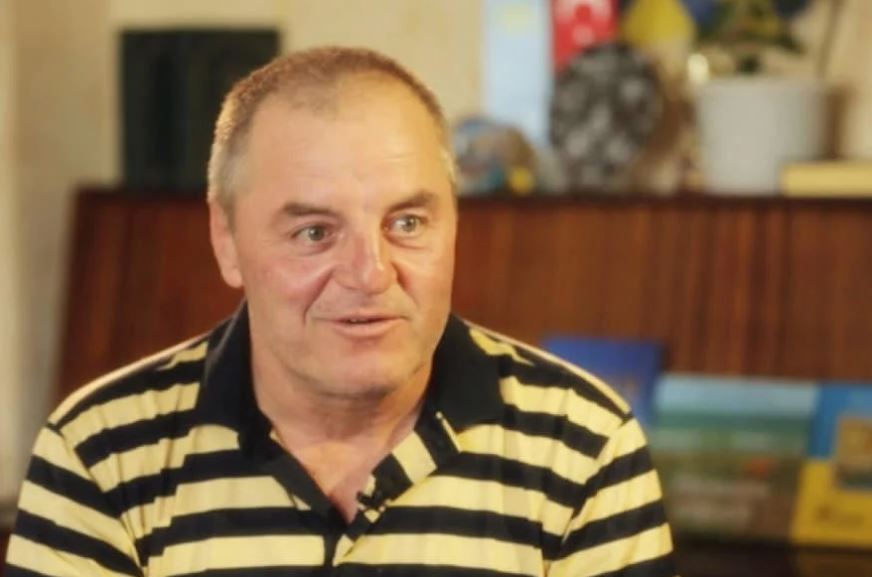 Edem Bekirov. Photo courtesy of
Edem Bekirov. Photo courtesy of 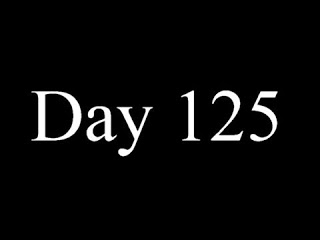 Award-winning Ukrainian filmmaker and political prisoner
Award-winning Ukrainian filmmaker and political prisoner 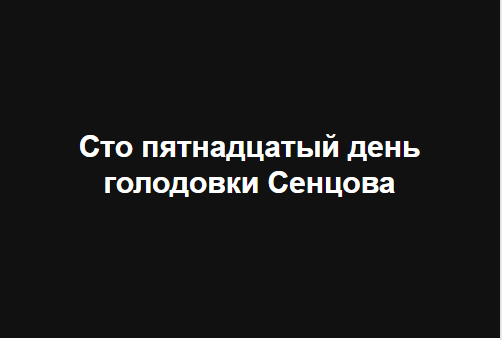 “The 115th day of Sentsov’s hunger strike.” Image courtesy of Askold Kurov
“The 115th day of Sentsov’s hunger strike.” Image courtesy of Askold Kurov